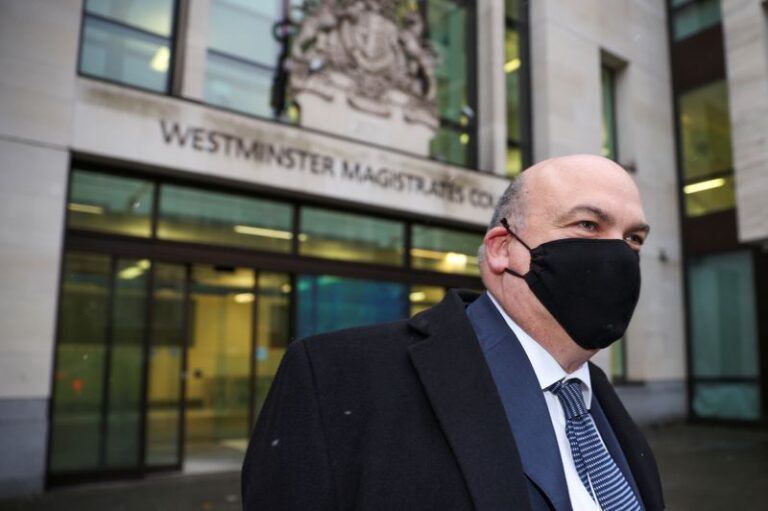Written by Abhirup Roy and Jodi Godoy
(Reuters) – Mike Lynch, the technology founder once hailed as Britain’s answer to Steve Jobs, is due to take the stand in San Francisco federal court on Thursday as his trial on charges he defrauded Hewlett-Packard Co out of an $11 billion deal with the company is nearing completion.
The testimony marks a pivotal moment in a 13-year legal battle that began with HP’s disastrous 2011 acquisition of Autonomy, the software company Lynch co-founded.
The deal was a major loss for the Silicon Valley company, which in 2012 wrote down the value of Autonomy by $8.8 billion after it discovered significant accounting irregularities.
Lynch and former Autonomy finance executive Stephen Chamberlain are charged with fraud and conspiracy for allegedly plotting to inflate the company’s profits starting in 2009 in an effort to attract buyers.
Prosecutors allege the pair inflated Autonomy’s finances through backdated contracts and “round-trip” transactions, in which they advanced cash to customers through sham contracts.
In the trial that began in mid-March, jurors heard from more than 30 government witnesses, including former HP CEO Leo Apotheker, who was fired just weeks after the Autonomy deal was announced.
Lynch’s lawyers argued in court that HP was so eager to acquire Autonomy and lock out potential competitors that it rushed through its pre-sale due diligence.
In opening statements, Lynch’s lawyers said the Cambridge-educated entrepreneur had focused on technology issues and left financial matters to Autonomy’s then-Chief Financial Officer, Sushovan Hussain.
Mr. Hussain was separately convicted in 2018 at the same court. He was released from a US prison in January after completing a five-year sentence.
The Autonomy acquisition was one of Britain’s biggest high-tech deals at the time and was supposed to boost HP’s software business. But it led to a series of bitter and expensive legal battles. HP nearly won a civil suit against Lynch and Hussain in London in 2022, but damages have not yet been determined. The company is seeking $4 billion.
Lynch was on the stand for 20 days during that trial.
Lynch said HP didn’t know what it was doing with Autonomy and didn’t have a deep understanding of the company’s technology.
(Reporting by Jodi Godoy in New York and Abhirup Roy in San Francisco; Editing by Matthew Lewis)

